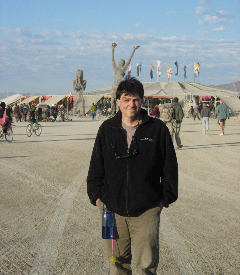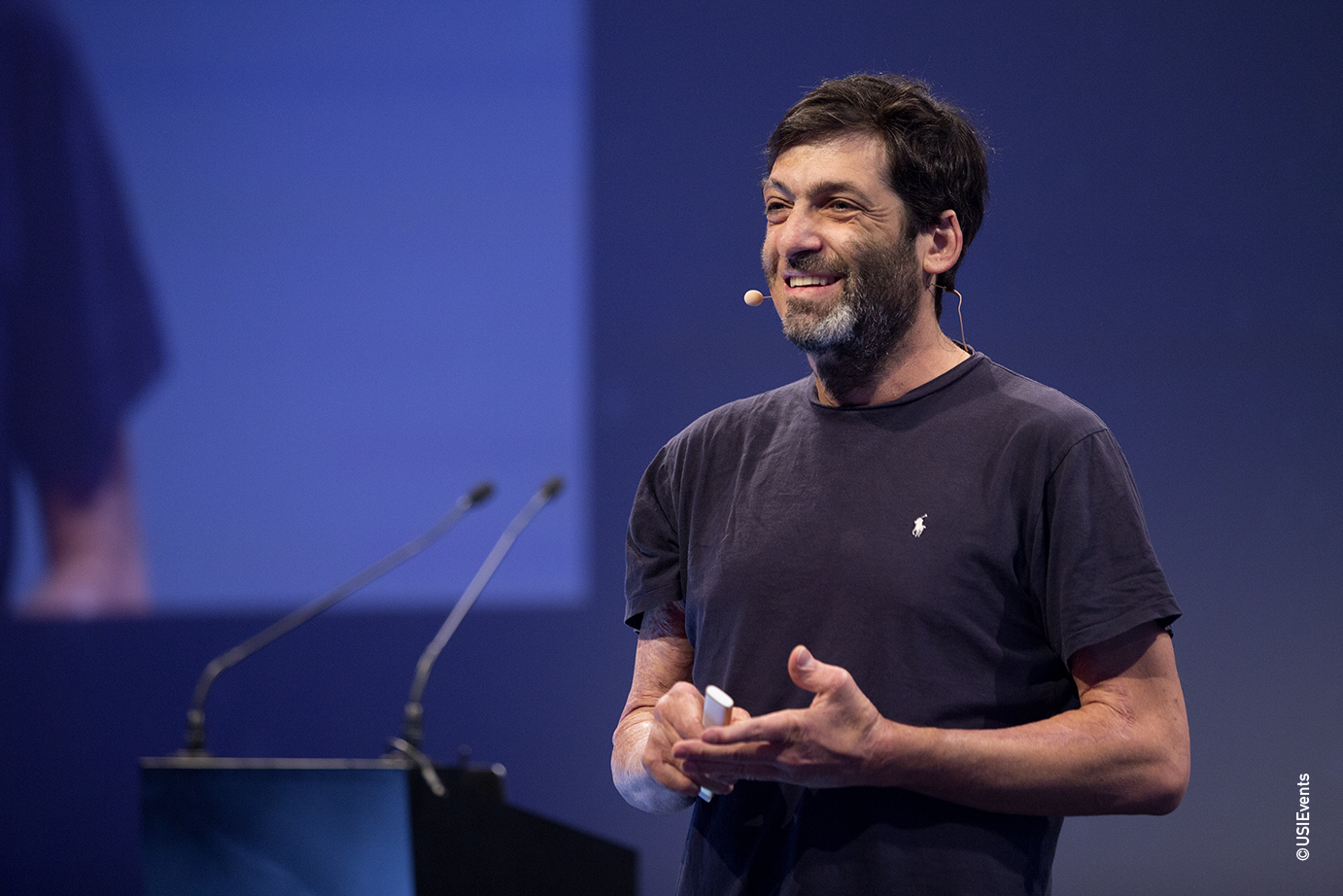Why did I write this book?
Some time ago I realized that I was a bit tired of the dryness of academic writing, and I wanted to write something different and fun (at least for me).
After some contemplation I decided to combine my passion for the kitchen with my passion for my research and write a guide for the kitchen from the perspective of decision making and human irrationality. I was excited. I even found a name for the project–Dining Without Crumbs: The Art of Eating Over the Kitchen Sink.
Excited, I sat down and wrote a book proposal. When I finished, I gave it to MIT press and e-mailed it to a few literary agents. As it turned out, no one was very excited about the idea of a social scientist writing a guide to the kitchen. Eventually I got good advice from Susan Arellano, a literary agent that was representing my good friend Greg Berns. (more…)
Publishers Weekly
INTERVIEWS
| Audio | |

Radio In Vivo Jan 30th 2008 Radio Show |
|
| KUOW Speakers Forum (3/6/2008) | Listen Here |
| NPR: Dissecting People’s ‘Predictably Irrational’ Behavior NPR 02/21/2008 |
Listen Here |
| [protected-iframe id=”7e422d990c1323578b4507cd0c312c38-1285065-114420722″ info=”http://www.wnyc.org/flashplayer/mp3player.swf?config=http://www.wnyc.org/flashplayer/config_share.xml&file=http://www.wnyc.org/stream/xspf/94275″ width=”350″ height=”36″] | |
| |
|
 Dan Ariely: Our Irrational Economic Mind Dan Ariely: Our Irrational Economic Mind |
Listen Here |
| Video | |
| The Early Show (CBS 02/19/2008) Dan Ariely discusses his new book, Predictably Irrational,with CBS’s Harry Smith. |
Watch Video Here |
| The Big Think (02/19?2008) | Watch Video Here |
| BloggingHeads.Tv (02/25/2008) | Watch Video Here |
| Book reading at Cody’s in Berkeley CA (03/04/2008) | Watch Video Here |
 (March 18, 2008) (March 18, 2008) |
Watch Video Here |
| Decisions and illusionsWe’re so smart, right? Yet ‘Predictably Irrational’ in making our choices 03/02/08) |
Read Interview Here |
| The Wrong Stuff – New York Post (03/10/2008) By Brian Moore | Read Interview Here |
The World Economic Forum
The World Economic Forum is a marvelous and interesting place. During my first day I tried to measure how many boring people I would meet. I started by randomly picking a person, try to chat with them for a few minutes and record my impressions. I went on with this for a few hours without meeting even one person that I did not enjoy spending time with (the next day I met a few politicians and at that point the game was over…).
I moderated a session about sustainability, and aside from the topic, remarks of the panel and the reflections of the audience, the highlight was to meet Jeffrey Swartz (President of the Timberland Company) — what a delightful person!
The next few days were full of meetings, receptions and parties, but the thing that I was most impressed with (over and over) was the energy and excitement of the people around me. Almost everyone was on a mission to change something in the world, to build something better and to fix some problems — and they were going about it in a creative and useful way.
I am not yet sure how much change actually comes out of Davos, but it sure gives me hope.
Dan Ariely: BIO
My immersive introduction to irrationality took place many years ago while I was overcoming injuries sustained in an explosion (here is a description of my experiences in the hospital). The range of treatments in the burn department, and particularly the daily “bath” made me face a variety of irrational behaviors that were immensely painful and persistent. Upon leaving the hospital, I wanted to understand how to better deliver painful and unavoidable treatments to patients so I began conducting research in this area (see picture below). After completing this initial research project, I became engrossed with the idea that we repeatedly and predictably make the wrong decisions in many aspects of our lives and that research could help change some of these patterns. A few years later, decision making and behavioral economics dramatically influenced my personal life when I found myself using all of the knowledge I’d accumulated in order to convince Sumi to marry me (a decision that was in my best interest but not necessarily in hers). After managing to convince her, I realized that if understanding decision-making could help me achieve this goal, it could help anyone in their daily life.
Predictably Irrational, and Perfectly Irrational are my attempt to take my research findings and describe them in non academic terms so that more people will learn about this type of research, discover the excitement of behavioral economics, and possibly use some of the insights to enrich their own lives. In terms of official positions, I am the James B. Duke Professor of Behavioral Economics at Duke University and a founding member of the Center for Advanced Hindsight. (Click here for a short version of my bio, and click here for an extended version of my bio)
My free time is spent working on a guide to the kitchen and life—Dining Without Crumbs: The Art of Eating Over the Kitchen Sink—and of course, studying the irrational ways we all behave.
RESEARCH REPORTS
In an attempt to make academic research more accessible, each of these reports summarize an academic paper in plain English, and more importantly point to the implications of the findings within the context of a real world problem.
Coming Soon
This is my first blog posting
I was thinking this morning about what I should write, and I found it to be a bit intimidating. I am very used to writing academic papers and somehow I find academic writing very easy. Maybe it is because this type of writing has more structure, maybe because I have lots of practice writing “academics.”
But, I also suspect that there are a few things that are very different about blogs, and that these unique features make the experience so different. First, blogs are very immediate. When we write academic papers it takes a few years before they are published, while blogs are “out” the moment you press the submit button. Second, when writing blogs there is a chance that someone will read the posting (which is unlikely for academic papers). Finally, blogs provide other people an opportunity to to react, post and provide feedback and criticism.
I suspect that these three features make writing a blog feel as if the “audience” is much more real (whether this is true or not), which is both exciting but also intimidating, and somewhat stressful.
I am looking forward to getting better at this …
 |
 |
| Burningman is a fantastic experiment in creativity, community, and generosity. It is also an interesting gift exchange society where money is not allowed. | Beehavioral economics is a complex and serious profession requiring focus and attention to details (this is also why I prefer the phone to video conferences) |
 Tweet
Tweet  Like
Like 














